Published Aug 21, 2024
Star Trek: Prodigy and the Quiet Horror of Time
There's a kind of terror that leaves you feeling lonely long after it's over.
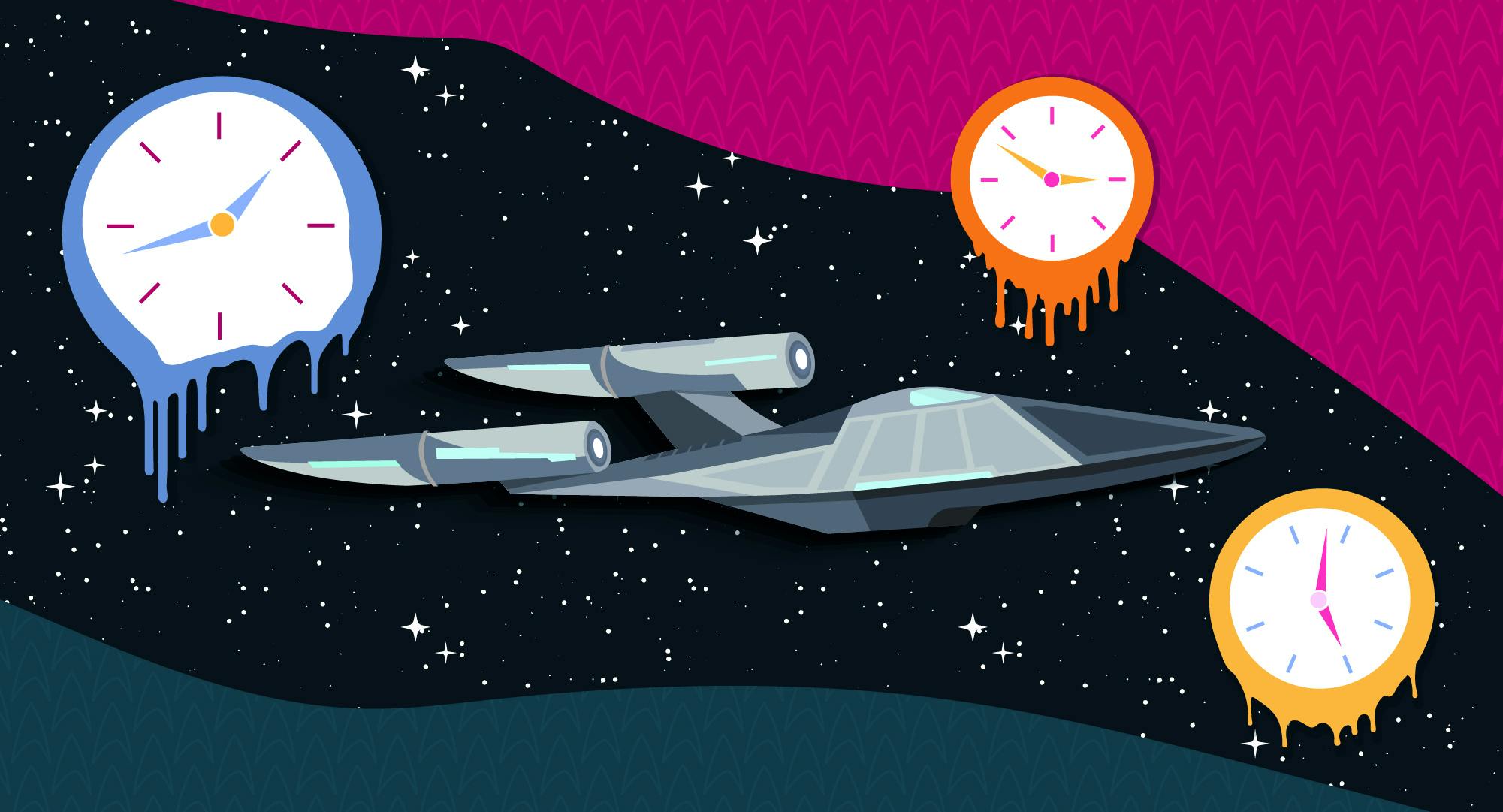
StarTrek.com
It's March 21, 1994. You come home late, turn on your TV, go to the CBS channel, and begin watching , where the first thing you see is Deanna Troi, half-frog, gasping out of a full bath tub ("").
The Gorn. "." The Borg. "." The Star Trek franchise is one of the major cultural pillars of sci-fi history and all its wonder. But Trek's writers understand that while science and progress can be fascinating, whimsical, and enlightening, it can also be the stuff of nightmares. Mary Shelley's Frankenstein is the progenitor of sci-fi, after all. So, with all of Star Trek's stories of hope and community, it would be disingenuous to the science fiction spirit to not also include its more gruesome manifestations. And one of the most frightening Star Trek episodes is 's, "."
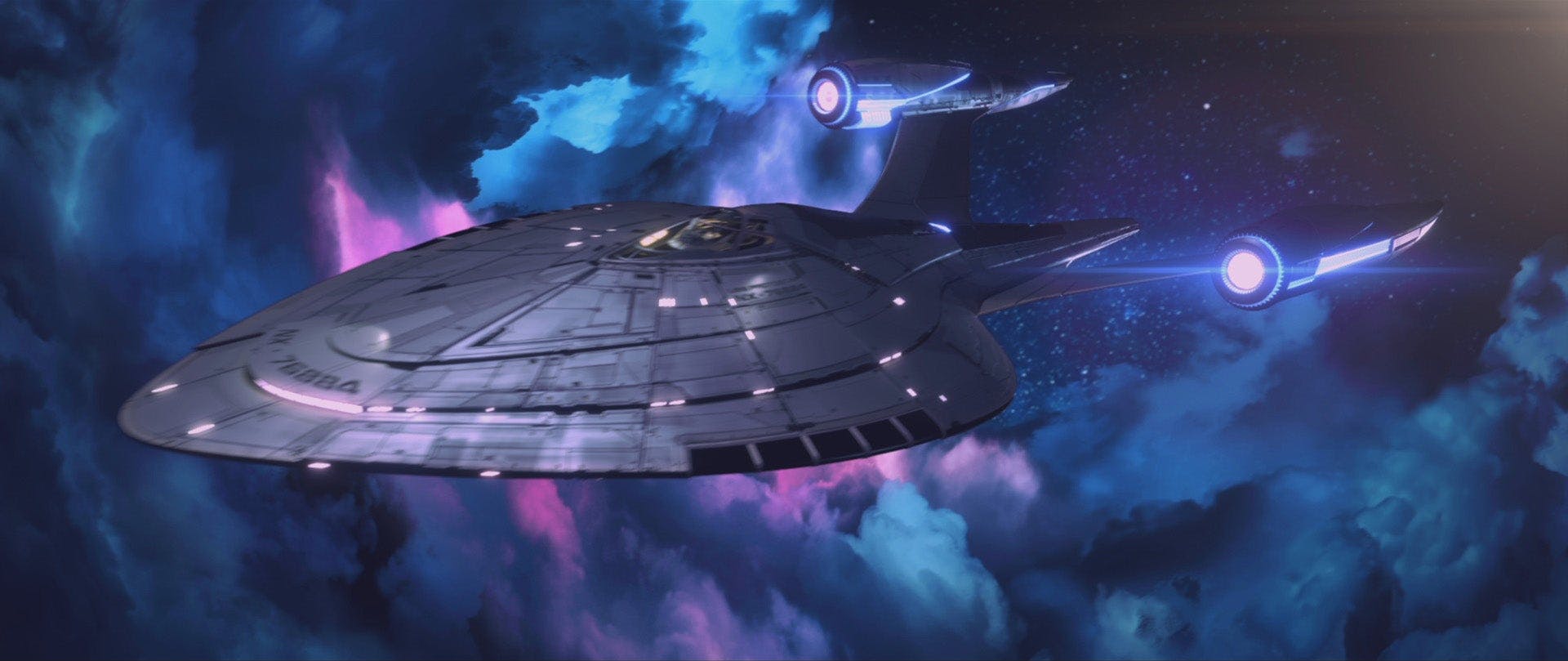
"Time Amok"
StarTrek.com
"Time Amok" is the eighth episode in Prodigy's first season. In it, the Protostar is trapped in a temporal anomaly, and despite being in different times and locations, the young crew must rely on Hologram Janeway to coordinate their efforts and fix the ship before it explodes. In particular, the young Rok-Tahk is in the slowest time bubble and spends the entire episode learning the engineering, physics, and scientific principles necessary to know how to fix the warp core. Because of her efforts, the Protostar is saved. When they all return safely to the bridge, Rok's friends embrace her as their new lead scientist. A heartwarming episode of teamwork and identity, right?
Until at the end when Hologram Janeway and Gwyn have an aside, and Gwyn asks how long Rok was alone. Janeway shakes her head gravely and says "too long" and chills run down your spine.
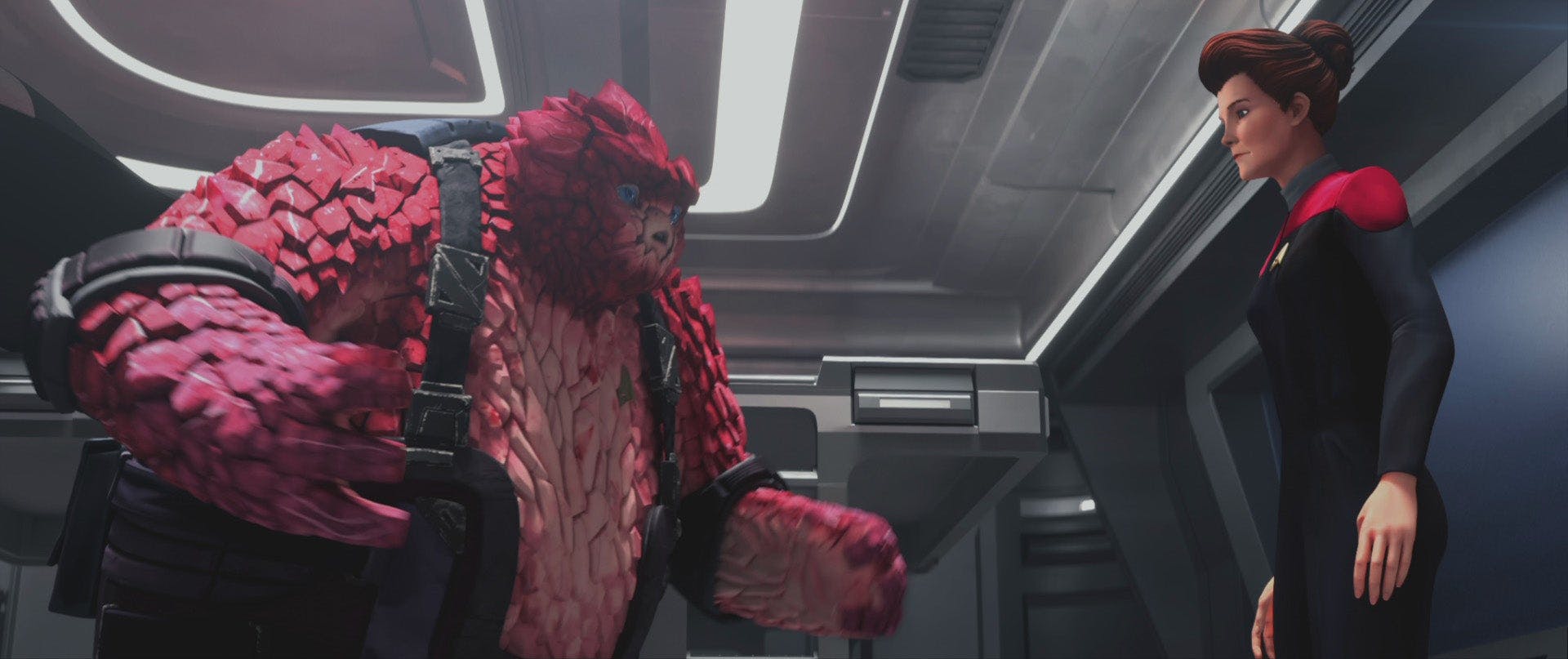
"Time Amok"
StarTrek.com
This isn't the first time Trek has explored the horrors of compressed time. In one episode, Chief O'Brien was psychologically jailed for years. However, while he experienced two decades of imprisonment, he was really only gone for a few hours ("").
Despite this method of punishment being dubbed "humane," this event did tremendous damage to his psyche. Throughout the rest of the episode, O'Brien struggles with vivid hallucinations of his cellmate, Ee'Char. Under the horrific conditions of the prison, O'Brien killed Ee'Char for hoarding food, not knowing he was doing so to share it. The guilt ate at him, but became all the more confusing when he realized his imprisonment — and, in turn, Ee'Char — weren't real. As the days go on and O'Brien tries to re-acclimate to his normal life, his hallucinations of Ee'Char cause him to act irrationally and even violently towards the people he cares for.
After Julian Bashir, his doctor and best friend, talks him down, the episode implies O'Brien needs lasting therapy to help recover. That the guilt, perceived lost time, and post-Ee'Char isolation did significant and long-lasting damage.
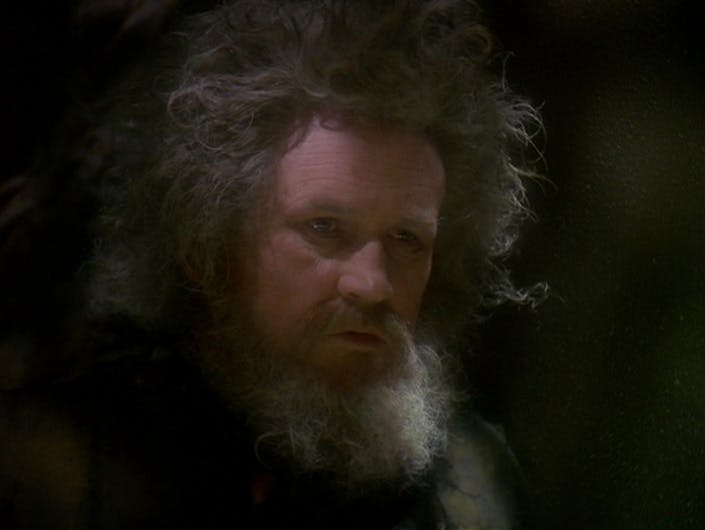
"Hard Time"
StarTrek.com
Now, let's look at Rok. While she did not face the horrors of prison — starvation, violence, inhumanity — she did face an unknown amount of isolation. If you do the math, even if Rok was prodigious in math, science, and physics, all of those subjects take several years of study to master (and Rok never was formally educated in the first place). If she's now equivalent to a capable ensign-level Starfleet engineer, it'd be a safe guess that she spent several years alone. And what kind of damage does that do to a person?
In what has been studied on isolation, that level of seclusion and loneliness can cause severe effects on one’s mental health. In a study done by Julene Johnson at the University of California, they studied the social lives of elderly seniors in an assisted living facility. Half the facility went to 90-minute choir sessions several times a week, and the other half did not. While their bodily health didn’t change, the choir-going seniors reported increased happiness, sense of purpose, and motivation. And in the case of incarcerated inmates forced into solitary confinement, they faced even worse ramifications — symptoms of hypertension, chronic headaches, extreme dizziness, heart palpitations, hallucinations, insomnia, depression, and more.
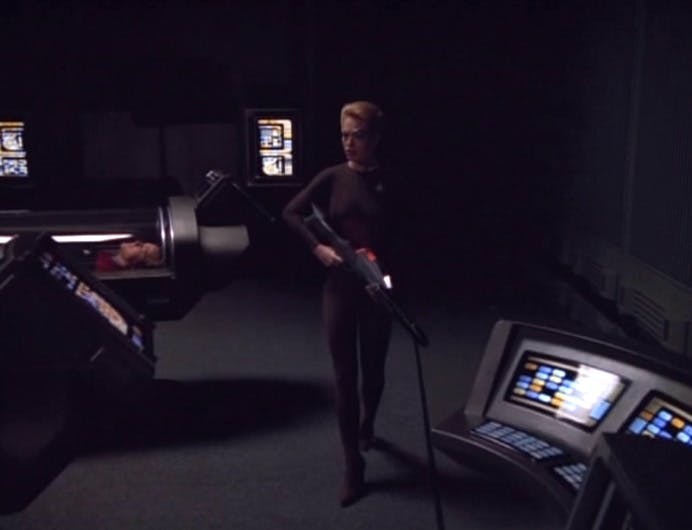
"One"
StarTrek.com
A great in-Trek example of these symptoms is the episode "," when Seven of Nine had to be isolated for roughly a month while caring for the Voyager crew in hypersleep. Seven of Nine suffered for a shorter period of time, and yet her isolation wreaked havoc on her — she suffered paranoia, hallucinations, and panic attacks. It's unimaginable what happened to the young Rok by comparison.
Beyond the isolation itself, a wildly understudied factor of forced seclusion is how isolated the afflicted feel post-event. Kinship is one of the greatest comforts of social society, and even once they've escaped isolation, these characters don't have anyone who knows the horrors of what they've experienced. They can tell people, but no one truly understands. And so, even once recovered, they still feel that lingering isolation and fear.
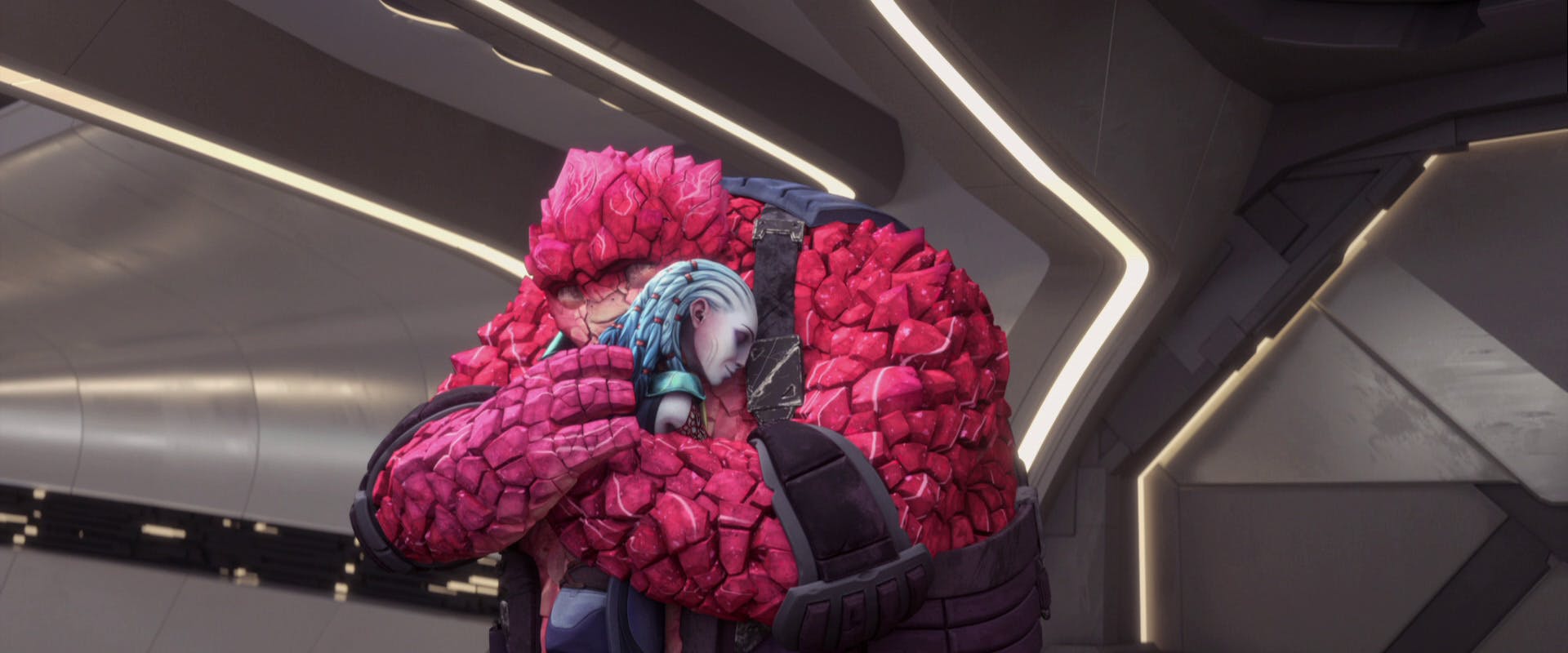
"Time Amok"
StarTrek.com
For story's sake, Trek doesn't have the space to give their characters (Rok, O’Brien, and Seven) the long term effects and recovery process of such isolation. Nxet episode, they’re fine. Per the studies, though it might take months for an isolation sufferer to recover — if they ever do.
However, Prodigy did include one episode exploring the emotional damages of isolation — how it affects one's temperament, outlook, and the work that must be done to help recover. In Season 2 of Prodigy, the young crew finds Captain Chakotay stranded on a planet for 10 years ("The Last Flight of the Protostar, Part I"). While he had the Hologram Janeway to talk to, he was mostly alone. All the trapping, hunting, foraging, and survival — anything that couldn't be found on the ship — was on him. It made him paranoid and prickly. While he eventually comes around to Dal and the Prodigy crew, the isolation and survivor's guilt made him reluctant to open up and listen to their suggestions. And the way he eventually accepted them wasn't because he magically saw reason — it was after they helped him with his mental health by fixing up the ship, helping with his fishing nets, and making a more habitable home out of the crashed Protostar.
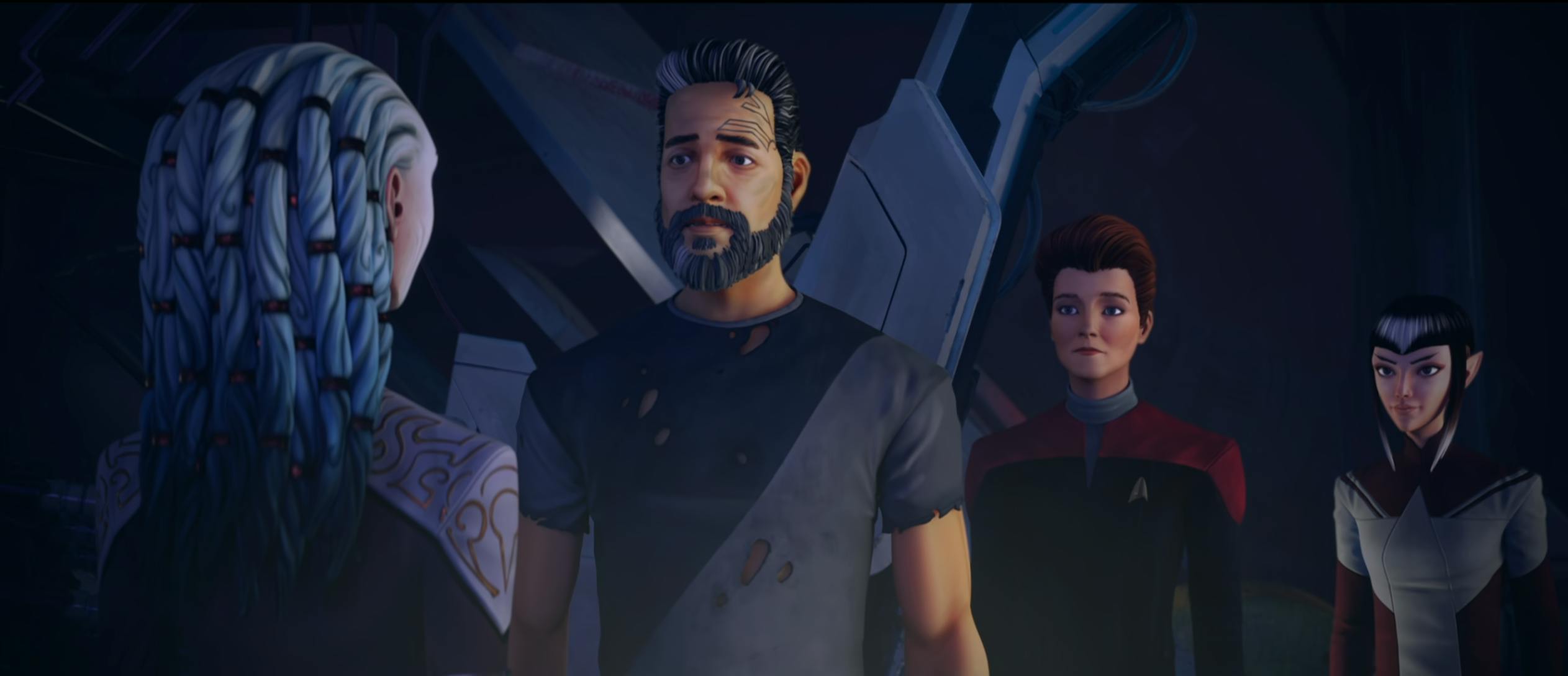
"The Last Flight of the Protostar, Part I"
StarTrek.com
With their assistance and support, Captain Chakotay recuperated and they all eventually fled the planet together.
Again, not the longest-lasting recovery period — Captain Chakotay was back to himself in a mere few days. But it is a rare story where Star Trek made space to talk about the aftershocks of a severe mental health crisis.
Also, while Rok's experience with time isolation isn't discussed again, it does reflect in her future character arcs. During Season 2 when her friends are sneaking around Voyager, Rok is very reluctant to cause trouble ("Into The Breach, Parts I and II"). While she's always been a big softie, there's a new anxiety and caution to her about getting in stressful and dangerous situations. She used to be their security officer for a short time — she once had to face danger head on and often, even if she didn't love it. Now, it's far too frightening.
In "The Fast and the Curious," Rok isn't eager to be put in a risky position that could lead them to being trapped and isolated on this planet, but she faces it to help her friends.
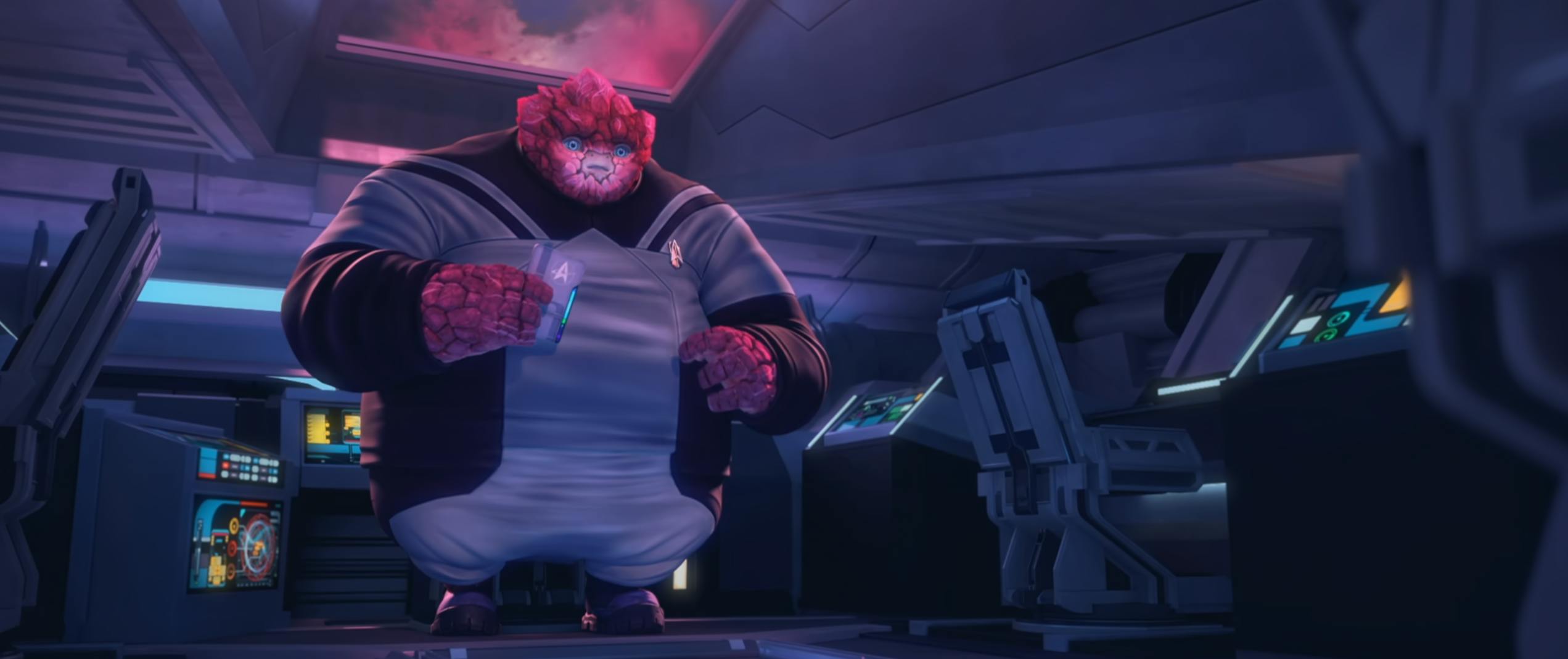
"The Fast and the Curious"
StarTrek.com
And that is the crux of Rok's horrible journey with isolation. It terrified her. It's stayed with her. It made her the scientist she is today, but it also took so much from her. Her connection to her crewmates and friends — and the promise of saving them and seeing them again — kept her going. Even with such strong willpower and sense of hope, though, Rok isn't saved from the emotional and psychological ravages of all that time alone. Isolation is simply that harmful. There's no telling how long it will stay with her.
When faced with Star Trek's most callous and unrelenting alien enemies, their assault lasts a few hours. You face it and you either survive or die. In contrast, there's a unique, prolonged horror in weeks upon weeks of isolating torture. The lost time that your loved ones can never understand. The kind of terror that leaves you feeling lonely long after it's over. So next Halloween, don't watch "." Watch "Time Amok."





